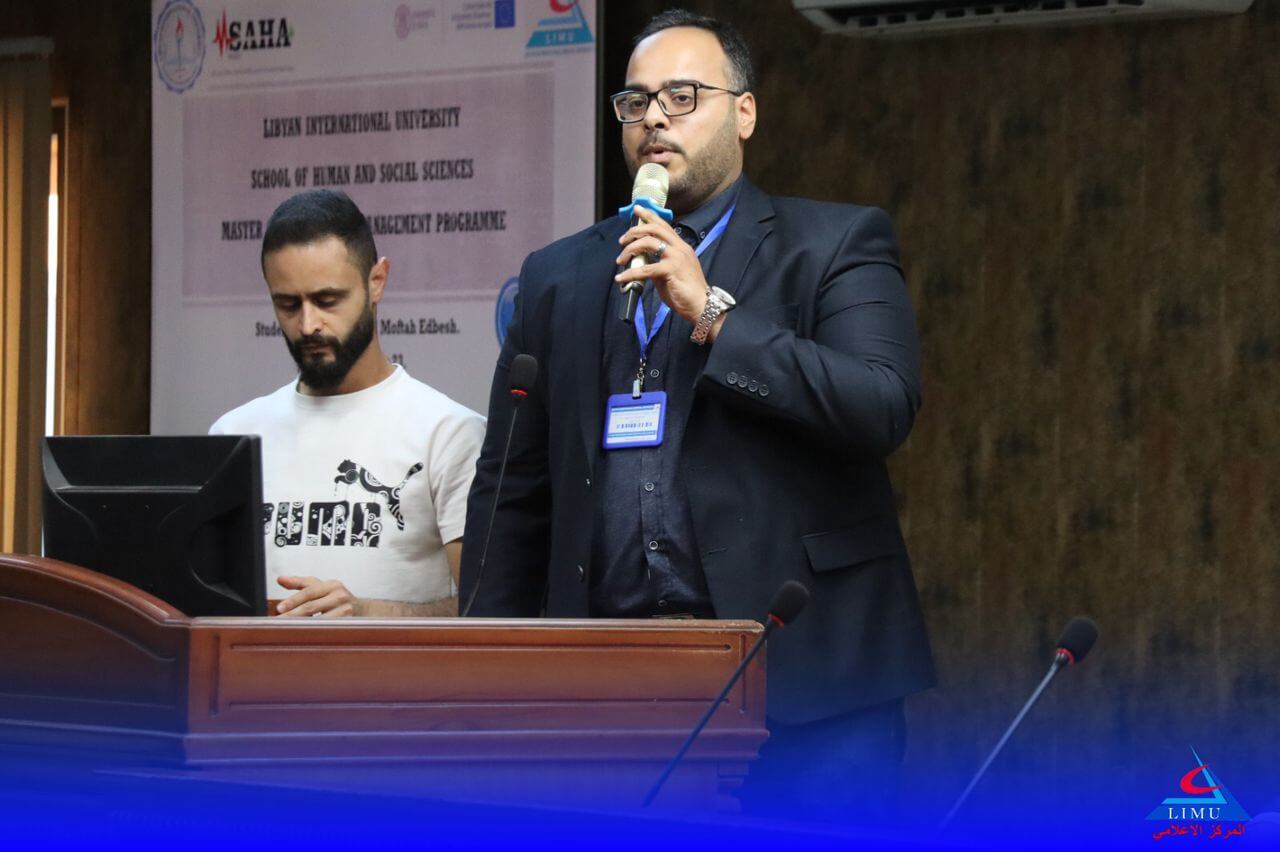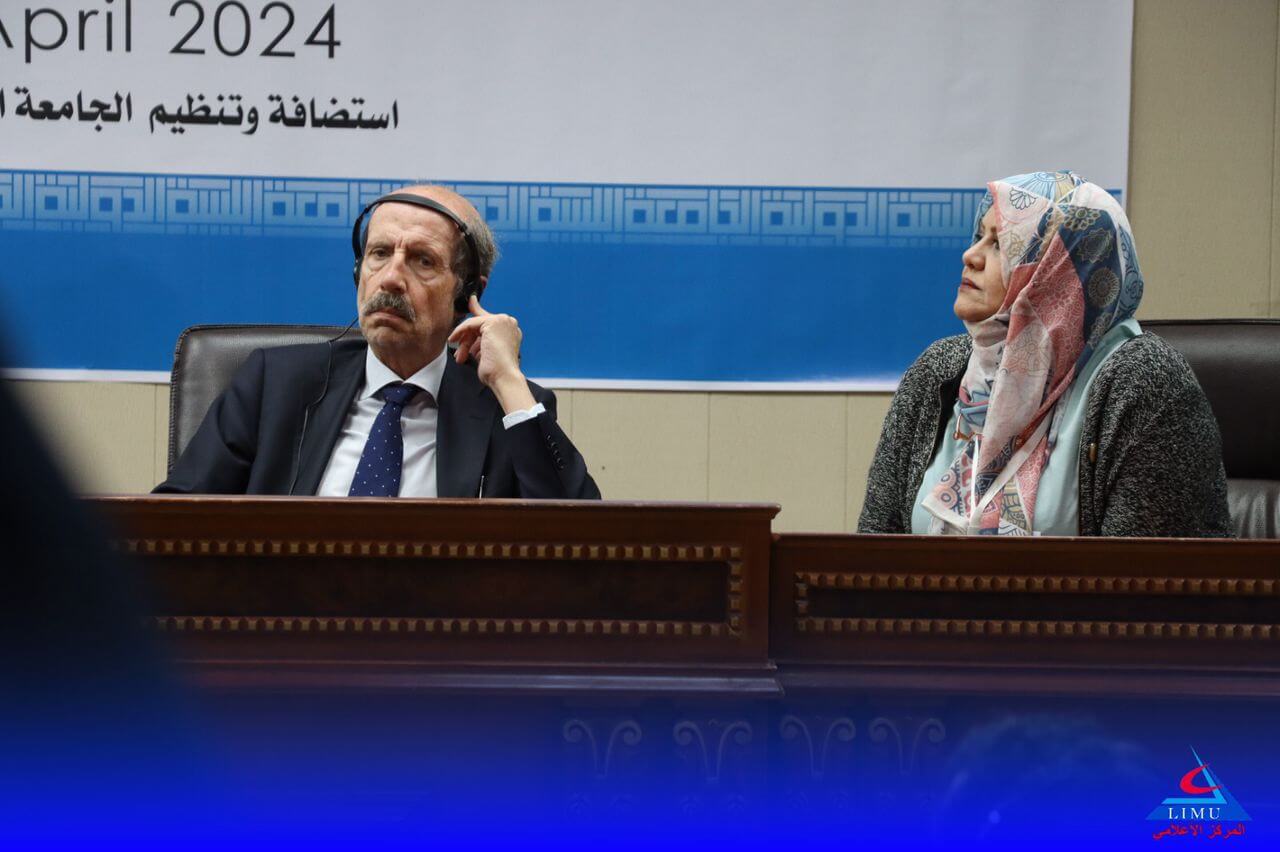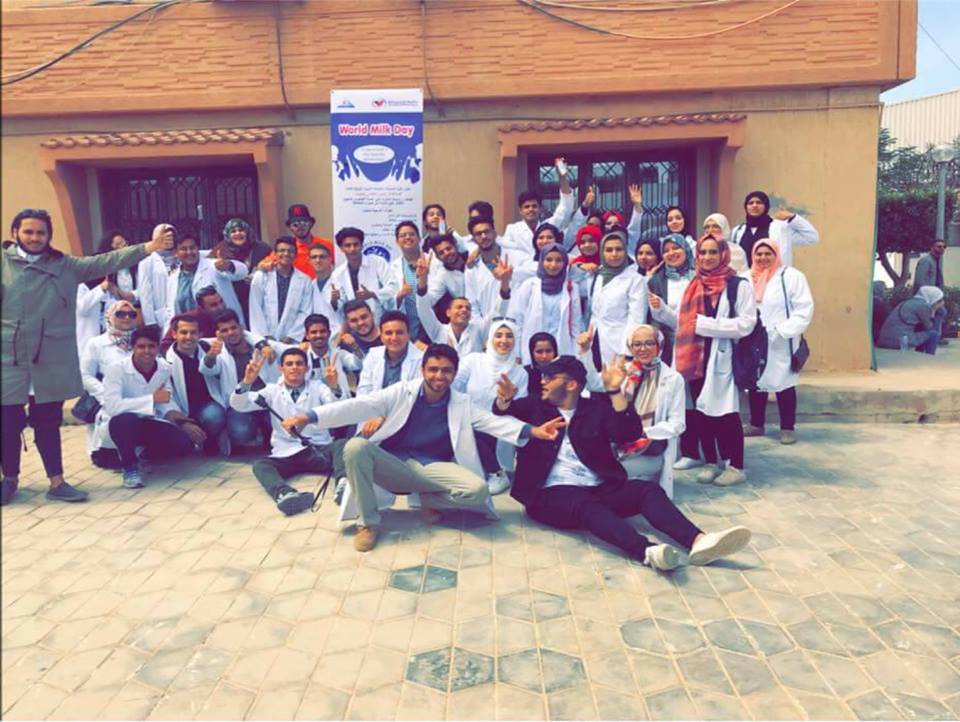As part of the activities of the opening session in its context, graduates of the LIMU (Dr. Mahmoud Edbiesh) and (Dr. Rihaan Al-Obaidi), enrolled in the European Union-funded Master’s program in Healthcare, and presented their research.
What Edbiesh and Rihaan presented confirms and enhances the excellence of the outputs of this university, as testified by international experts who expressed their admiration for the academic level they reached and the exceptional training they received. Professor Kalli, Coordinator of the Mediterranean Universities Union, says: “The Libyan International University has proven to us the success of our project and the feasibility of the effort put into it, over 4 years. Now we see the fruits of that in these outstanding young people. They will form the fundamental basis for the healthcare system in Libya.”
The graduation message presented by Dr. Mahmoud Muftah Edbiesh addressed:
The importance of retention strategies affecting the satisfaction of healthcare workers in Benghazi hospitals.
The researcher used questionnaires for doctors and nurses, with 160 participants from various public and private hospitals.
The overall satisfaction rate with working conditions was 50.85%.
We also recommended the need to enhance communication within institutions and improve the level of workers through training programs and incentive systems.
Dr. Rihaan Al-Obaidi
Integration of Telemedicine in Benghazi Hospitals: a Cross-Sectional Study of Implementation and Sustainability Factors:
With the significant increase in telemedicine usage, it is important to understand the factors influencing the success of its programs.
Research Objective and Method:
Research Objective: To study the factors influencing the implementation and sustainability of telemedicine in Benghazi.
Technological and organizational factors such as infrastructure deficiencies and policies.
Patient-related factors such as privacy concerns and inability to afford costs.
Resource-related factors such as resource shortages in hospitals.






